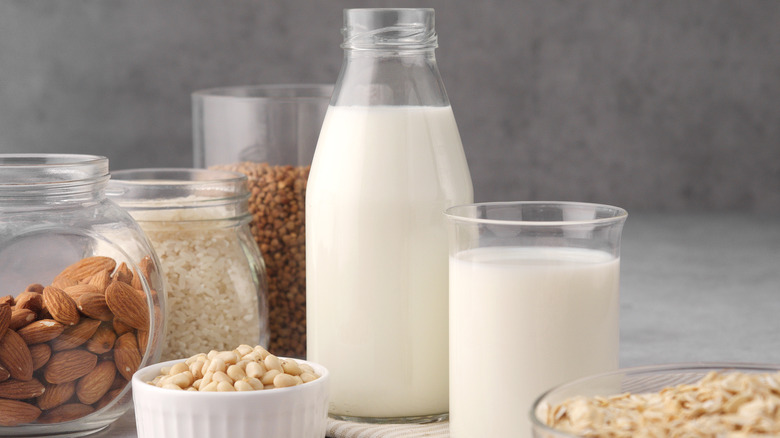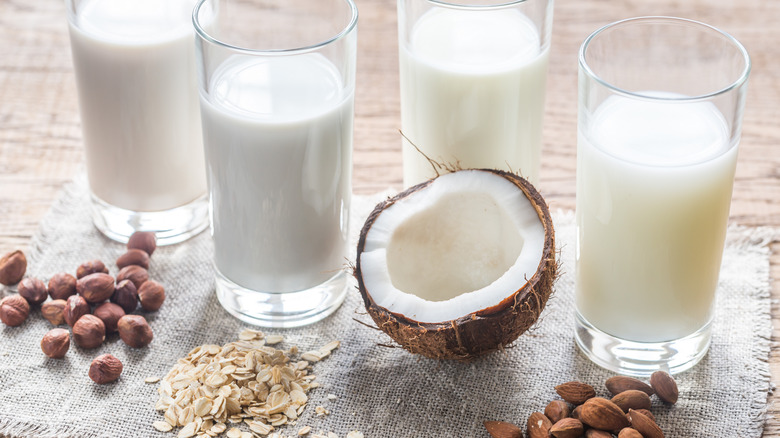FDA Officially Approves Of 'Milk' Label For Plant-Based Alternatives
It looks like the beef between the dairy industry and the plant-based industry is coming to a close. In recent years, the dairy industry and plant-based industry have been brawling over the labeling of certain plant-based products. As more plant-based types of milk are popping up in grocery stores, the dairy industry — or Big Dairy, if you will — has been demanding the federal government to limit the use of the term "milk" to dairy products, arguing the label can confuse and mislead consumers if used by plant-based milk alternatives.
In 2016, the National Milk Producers Federation urged the Food and Drug Administration in a letter to "order manufacturers of plant-based drinks to find some other name," NPR reported. Despite pushback from the dairy industry, more Americans are turning to plant-based milk alternatives. According to the Good Food Institute, plant-based milk made up 16% of overall milk sales in 2021.
In September 2018, the FDA released a notice requesting comments from consumers in regard to beverage makers labeling their plant-based milks as milk. The agency received more than 13,000 comments. Based on these comments, the FDA has recently issued new guidances in favor of plant-based milk manufacturers.
Plant-based milks can be labeled as milk
The Food and Drug Administration released draft guidelines stating that plant-based milks can continue to be labeled as milk. However, the agency recommends that plant-based milks be clearly labeled by their source, such as "oat milk" or "almond milk."
The draft concluded that consumers "understand that plant-based milk alternatives do not contain milk." In fact, in the guidelines, the FDA cited a survey in which nearly 75% of respondents stated they're aware that plant-based milk alternatives do not contain dairy; just 10% believed plant-based milks are dairy products.
The draft guidelines also recommend that plant-based milks should voluntarily include a "nutrient statement on the product label describing how it is nutritionally different" and if they have a lower nutrient content, such as magnesium or potassium, compared to dairy milk. The FDA stated that while Americans aren't confused about the differences between plant-based milk and dairy milk, research shows that "consumers may not understand the nutritional differences between them." Thus, the nutritional statements will help consumers make informed choices, according to the draft guidelines.
The FDA will accept comments on the draft guidelines until April 23.

